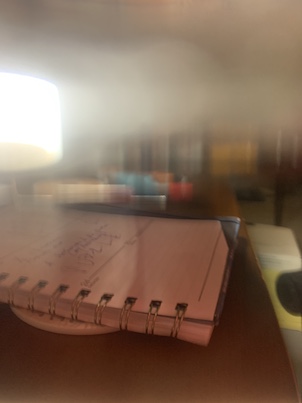As many of you know, I’ve been working on a piece that examines what I call “Soft Plagiarism.” That is still in progress but, fingers crossed, having surmounted some hurdles to do with time and energy, it will be out soon. But I often get queries about where people might find my thoughts on the subject outside of social media posts, and I just realised that Margot Weiss’s piece on the matter—where she generously cites me— is now available to a wider public.
So here is “The Interlocutor Slot: Citing, Crediting, Cotheorizing, and the Problem of Ethnographic Expertise,” with many thanks to Margot (whom I have known for many years, hence my use of her first name).
I should also emphasise that when I say that people should cite me, I don’t mean, “PRAISE ME!” What I mean is, critically engage my original work and thoughts. I’m not asking for a constant drumbeat of, “Yasmin Nair is brilliant!” (though I will not argue about the veracity of that statement). What I’m asking for is an engagement with my work and thoughts. You can say, “Yasmin Nair says X but is completely wrong and here’s why.” My point is that my work and analysis have, for years, informed a great deal of other people’s work and analysis on a range of topics — gay marriage, the emotional and psychic seductions of neoliberalism, the problems with immigration reform, and so much more. But because I am an unaffiliated rat bastard (a term I borrow from an old friend), without the protection of tenure of any kind at either a university or a publication, people have felt free to filch and re-present my words and work as their own. If you think of yourself as a scholar or thinker or writer with integrity, you are obligated to engage, not just steal, my work or try to submerge it under a footnote and hope that no one will notice what you’ve done.
I also want to emphasise that my concern about Soft Plagiarism isn’t just personal: there are countless people who have had their work filched, often brazenly, by people with more power than them (professors from graduate students, or established writers from struggling ones, for example). I want that to change. The pressures of publishing in academia and the more general publishing world are immense, but if writers everywhere can’t uphold the most basic principles of collegiality and intellectual engagement, they ought not to write at all. For that reason, my work on the subject will be broadly divided into three: a definition, with a few examples of what happened to me, then a compendium of examples of what has happened to many others, and then a reflection on the costs and how things need to change.
To that end, the consequences I seek for what I think is the unforgivable crime of plagiarism, soft or otherwise, will vary depending on factors (place of publication, profits earned by said instance, and so on). But there need to be consequences, and there needs to be more accountability for such instances. And, perhaps most of all, we—collectively—need to rethink what we imagine as “writing” and “intellectual” work and that also means acknowledging that the work of writing is not some divine calling, but actual labour.
More later, and Happy New Year!
********
Image: Photo by Yasmin Nair, 2022
Don’t plagiarise any of this, in any way. Read and memorise “On Plagiarism.” There’s more forthcoming, as I point out in “The Plagiarism Papers.” I have used legal resources to punish and prevent plagiarism, and I am ruthless and persistent. If you’d like to support me, please donate and/or subscribe, or get me something from my wish list. Thank you.

